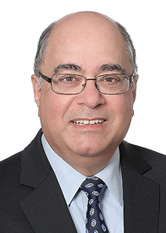Successful Defeat of General Motors Trust's Claims for Insurance Coverage In Delaware Supreme Court
On July 10, 2018 the Delaware Supreme Court affirmed three lower court rulings which held that various excess insurers of the Motors Liquidation Company DIP Lenders Trust had no liability for underlying asbestos and environmental claims under policies issued to General Motors.
GM purchased primary coverage from Royal Insurance Company for more than 50 years ending in 1993. The insurers in this case all issued excess coverage to GM above the Royal coverage prior to 1986, including Windels Marx’s client. From 1972 on, the Royal policies included an endorsement that made them “claims-made” policies rather than “occurrence” policies. Thus, from 1972 on, the Royal policies covered only claims first made during the policy period. Over the course of many years Royal handled asbestos claims made under the Royal policies during that period but never made any claims against the excess coverage.
After a dispute arose between GM and Royal over the handling of those asbestos claims, declaratory judgment actions were filed in 2005 in Delaware by Royal and Michigan by GM. In support of GM’s motion to stay or dismiss the Delaware action in favor of the Michigan action, it advised the Delaware court that all post 1971 Royal coverage was on a claims made basis and that it was not seeking coverage under those policies. Ultimately, GM and Royal reached a settlement that released all of Royal’s policies from further liability.
After GM reorganized out of bankruptcy, the excess policies at issue in this matter were assigned to the Motors Liquidation Company DIP Lenders Trust. The Trust then sued GM’s excess insurers in the Delaware Superior Court seeking coverage for GM’s historical asbestos and environmental claims. In the lower court, the excess insurers, including Partners Steve Calogero and Andrew Craig, successfully obtained summary judgment dismissing the Trust’s claims in their entirety against the post-1971 excess insurers. The lower court found that the post-1971 excess policies were not triggered by these claims which were not reported to either GM or Royal in any post-1971 period. It reasoned that the claims were not covered by the post-1971 Royal policies and thus were not covered by the post-1971 excess policies. It also ruled that the Trust was estopped to argue that the post-1971 Royal policies were not claims made.
On appeal by the Trust, the Delaware Supreme Court affirmed that the claims at issue were not covered under any of the post-1971 policies. Because there was no coverage under the primary Royal policies from 1972 on, the post 1971 excess policies were also not triggered. The court affirmed this holding even though some of the post-1971 excess policies included occurrence-based trigger language. It also affirmed the lower court ruling that the Trust was estopped to argue that the post-1971 Royal policies were not claims made.
The case was covered by Law360.

